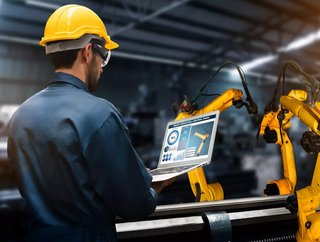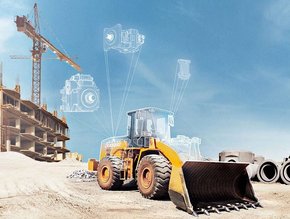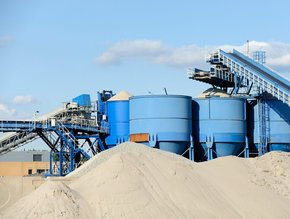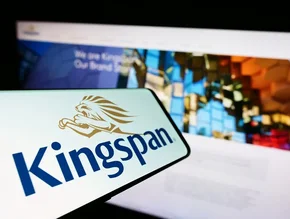Momentum builds in AI analytics platforms and robotics

Beyond the frenzy of your standard construction site, a quiet revolution is taking place. Investment in new technologies is spiralling as the industry seeks to build efficiencies, improve productivity and reduce delays.
Global construction is valued at $13 trillion yet despite pioneering a lot of technological innovation, including CAD, simulation and early ML applications, the building and infrastructure construction is still the second least productive industry.
Every year, approximately 40% of value is lost in unnecessary delays, rework and waste. Increased investments in BIM and visualisation while valuable, has not done much to bridge the critical gap between construction plans and the as-built reality.
UK-based construction analytics platform Contilio has raised an initial $1.5M led by VC Pi Labs to help drive expansion as the ConTech industry continues to grow. The breakthrough 3D AI construction analytics platform will use the funds to attract more customers, and further advance its product and tech.
Contilio’s AI platform provides actionable intelligence from 3D construction site data (Lidar/Laser scans) by intelligently classifying all structural, architectural and MEP elements and automatically comparing them with the BIM and the schedule.
The software works seamlessly with all commercially available Lidar/Laser scanners and most recently drones. Since launching from stealth in 2019, Contilio has been used by global general contractors (e.g., Balfour Beatty), developers (e.g., Prologis) and owners (e.g., Enel), helping them deliver building and infrastructure projects cheaper, faster and more sustainably.
On average, customers report that the Contilio platform delivers the progress and quality insights 15 times faster for 100% of the construction site. This, for the first time, enables key stakeholders to remotely track progress, swiftly manage delays and installation errors, and to make smart decisions.
When deployed at scale, Contilio claims it delivers significant cost savings, better bid performance and up to 20X return on investment. Due to the significant reduction in construction rework and waste, CO2 emissions are reduced, helping sustainability strategies.
The next version of Contilio’s product which will be launched soon enables the users to access the insights 24/7 from anywhere in the world with 10X better performance in terms of visualizing 3D insights. A free version will be also made available to a short-list of power users.
Zara Riahi, Founder & CEO, at Contilio said: “Construction is a pivotal part of all of our lives whether we are indoors, commuting or communicating. After spending years managing mega construction projects and investing in AI and Fintech, I realised that the 3D AI advancements would help deliver the much-needed change for an industry that I knew deserved much better.
“The Covid-19 pandemic, shortage of skilled workforce, and the growing trend for better build quality have exponentially increased the demand for data-driven insights, predictable outcomes and timely verification of quality errors. This has shifted the industry’s focus from 360 visualisation tools, to automated and scalable software, taking the value game to the next level.
“Pi Labs investment and its unparalleled access to a global network of property and construction leaders will be a great asset to Contilio as we quickly grow our customer base and advance our business in our journey to reshape the construction industry. We look forward to working together and having a positive impact on the future of real estate and infrastructure.”
Faisal Butt, CEO of Pi Labs, said ESG and progression of the real estate industry have always been core to Pi Labs’ mission.
“Construction is a key part of that equation, where manual, costly and paper-based processes have been a core reason for wasteful errors, critical delays and overruns,” he said. “Our research shows us that Construction is ripe for technology disruption and evolution and that Construction tech has a vital role to play as we work towards achieving net zero, optimized supply chain and efficient construction delivery.”
Contilio’s solution fills a large void in terms of enhancing construction efficiency and reducing waste. Its AI software not only helps enable significant cost savings during construction, but also drives sustainability benefits and better build quality for owners and developers, enabling them to reap the benefits during asset operations. “That is why we at Pi Labs are delighted to be supporting Contilio’s expansion and continue to believe that Construction Tech will offer many innovations that will improve our built environment.”
SafeAI powers connected autonomous sites
SafeAI recently announced $21 million in Series A funding led by Builders VC. The new capital will be used to advance the company’s interoperable autonomous technology through accelerated research and development, and fuel global expansion to meet rising demand for autonomous heavy equipment.
SafeAI is driving the transformation of the mining and construction industries through connected, autonomous sites. With chronic labour shortages, unsafe working conditions and frequent project delays, these industries are in a unique position to benefit from autonomy. And unlike on-road applications of the technology, autonomous heavy equipment operates in controlled environments, which means companies can create smarter, safer, more productive project sites today that create meaningful, near-term impact.
“We are at a tipping point for autonomous heavy equipment,” said Bibhrajit Halder, founder and CEO at SafeAI. “We’ve proven that autonomy makes work sites significantly safer and more productive; now, we are on the cusp of mass adoption. Together with our valued partners, customers and investors, we’re poised to deploy autonomy in off-road industries like construction and mining, at scale, to rethink the way heavy industry operates.”
Heavy industry is a huge, growing global market, ripe for disruption. The construction equipment market alone is valued at $140 billion, and expected to increase to $175 billion by 2025; construction-related spending accounts for a staggering 13% of global GDP, or $11.5 trillion. But there remains significant room for growth; in construction alone, higher productivity could create an estimated $1.6 trillion in additional value. With just 25% of the infrastructure needed by 2050 in existence today, autonomy can bridge this productivity gap with greater efficiency and 24/7 operations. SafeAI is at the forefront of this transformation.
“There’s a tremendous amount of excitement in the autonomy space today; but it’s clear the biggest opportunity for this technology is off-road,” said Mark Blackwell, General Partner at Builders VC. “With its industry-leading autonomous software, scalable retrofit approach and partner ecosystem, SafeAI is uniquely poised to capitalize on this opportunity. We’re proud to support the company in its next chapter of growth as demand for autonomous heavy equipment continues to skyrocket.”
New investors LTC, DG Ventures, MACA and Vimson Group, and existing investors Autotech Ventures, Brick and Mortar Ventures, Embark Ventures, Monta Vista Capital and Obayashi Corporation, also participated in the round. The funding comes on the heels of a year of rapid growth for SafeAI, including new partnerships with Obayashi, Goodyear and Macnica, and expansion into Australia’s booming mining market.
Giatec debuted what it claims is the world's first concrete AI tool for producers, SmartMix, at the FutureTech conference.
The web-based AI tool allows producers to optimise concrete ingredient proportions, reduce cement usage, and predict the performance of their mixes while still meeting project specifications. Giatec believes this tool will lower Greenhouse Gas emissions resulting from concrete production by 400 million tons annually, the equivalent of taking 110 million cars off the road.
Hyundai and Boston Dynamics target robotics value chain
Hyundai Motor Group has bought a controlling interest in Boston Dynamics from SoftBank following regulatory approvals. Post-closing, the Group holds an 80 percent stake in Boston Dynamics and SoftBank, through one of its affiliates, retains the remaining 20 percent stake. The deal valued the mobile robot firm at $1.1 billion.
Together, both companies aim to create a robotics value chain, from robot component manufacturing to smart logistics solutions. Additionally, the Group will support Boston Dynamics' continued expansion of its product line and global sales and service footprint.
In the field of robotics, the Group aims to develop advanced technologies that enhance people's lives and promote safety. The deal is also expected to allow the Group and Boston Dynamics to leverage each other's respective strengths in manufacturing, logistics, construction and automation.
Boston Dynamics launched sales of its first commercial robot, Spot in June 2020 and now has hundreds of robots operating in a variety of industries, including construction, power utilities, manufacturing, oil and gas, and mining. The company also recently unveiled Stretch, its first commercial robot specifically designed for warehouse facilities and distribution centers.
RobotLAB and SoftBank Robotics America announced that the humanoid robots Pepper and NAO are now exclusively available through RobotLAB in North America. The partnership also expands Pepper's previous industry and STREAM education focus areas to a broader range of applications, and marks RobotLAB's debut as one of SBRA's Whiz Partners.
Bridgestone buys stake in Kodiak Robotics
Bridgestone Americas has made a minority investment in Kodiak Robotics, a leading US-based self-driving trucking company. The partnership will allow Bridgestone to integrate its smart-sensing tire technologies and fleet solutions into Kodiak's level 4 autonomous trucks.
The companies will also pilot future autonomous and smart tire technologies to further enhance vehicle intelligence and advance toward a safer, more efficient, and more sustainable mobility future.
"Automated vehicles offer a number of benefits to commercial fleet customers and society, including safer roads with fewer unexpected incidents, and upwards of 20 percent savings in fuel and efficiency," said Paolo Ferrari, Global Chief Solutions Officer, Bridgestone Corporation, and President & CEO, Bridgestone Americas.
"Advancements in tyre-centric technologies are critical to unlocking greater innovation in mobility, while also delivering significant sustainability benefits. This investment will enable Bridgestone and Kodiak to work together to co-develop advanced mobility solutions with speed and precision that will revolutionise commercial trucking."
Trio collaborate on digital twin
Nexer Insight (Nexer Group), NCC, Microsoft and Scharc recently completed the first phase of a joint project on digital twins, which took place in connection with the construction of the new Sigfridsborgsskolan in Nacka municipality, Sweden.
The primary purpose was to investigate how digital technology can make construction design safer, more sustainable and more efficient.
About two years ago, Nexer Insight was introduced to NCC by Microsoft. A meeting that resulted in a first joint and unique collaboration on safe and secure workplaces; one of NCC’s most important focus areas. The project was based on cranes at construction sites – a high-risk area identified by NCC – and involved in addition to Nexer Insight (at that time Sigma), Microsoft, ARROW and Edins Byggkranar.
“In the crane project, part of the project Connected Construction Site, we tested new technology based on monitoring using cameras and advanced software that immediately warns the crane operator of any people on the ground. In the project, Microsoft provided the cloud-based technology platform that formed the link between us at Nexer Insight, NCC and the others involved”, says Carl Tönseth, Regional Manager, Nexer Insight, niched in IoT and AI.
Digital twin is likely to be a key project management tool as it anticipates such dangers.
“This can be, for example, real-time sensor data from zones where it can be dangerous to work due to hazardous microparticles in the air. We have also tried to track where the material is, as well as people we may need to get in touch with, and who in the worst case has had an accident and need to be found quickly”, says Claes Henschel, NCC.
NCC sees the potential to conduct predictions and simulations where the project members can test what happens if they do it in one way or another, ensuring operations are safer, more sustainable, and save time and money.
OsloMet sets up Trimble tech lab
Norway's Oslo Metropolitan University (OsloMet) has received a gift from Trimble to establish a state-of-the-art Technology Lab for civil engineering and energy technology. The lab will expand the university's leadership in digital applications for civil and structural engineering, building technology and sustainable building design.
The lab will include a broad range of Trimble's solutions such as Trimble SiteVision, Robotic Total Stations and Rugged Tablets. Advanced software solutions Quadri, Novapoint, Quantm, Tilos, Tekla Structures, Tekla Structural Designer, Tekla Tedds, Trimble Connect and the company's popular 3D modeling software, SketchUp Pro and SketchUp Studio.
Software booms on back of IoT
Frost & Sullivan's recent analysis of the global homes and buildings industry finds that although the effect of the pandemic was severe in traditional markets such as heating, ventilation, and air conditioning (HVAC), lighting, and building automation, technology-based software markets flourished.
They were driven by IoT penetration at the field level of buildings, the emerging adoption of AI-driven solutions at the management level, and cloud-based remote services. Industry participants are including digital offerings to provide technology-enabled solutions that play a vital role in seamlessly integrating with existing systems and delivering building performance optimisation.






